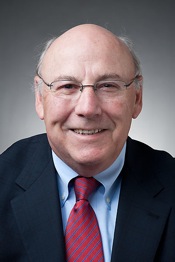UW-Madison fares well in Chronicle of Higher Education college completion survey
The University of Wisconsin–Madison was highly ranked in several categories in a recent report on college completion published Monday by the Chronicle of Higher Education.

DeLuca
The report ranked UW–Madison “best” in four of six metrics – six-year graduation rates (83 percent); four-year graduation rates (49.7 percent); completions per 100 students (23.9) and student aid per recipient ($5,885).
The categories in the Chronicle’s report are based on a five-point, best-to-worst scale.
“In these categories, the report bears out what we already know: UW–Madison does an excellent job of graduating students,” says Provost Paul M. DeLuca Jr.
But, according to the report, the university ranked “worst” in two categories.
One is educational spending per completion, which the newspaper listed as $92,402 – the highest in the state.
“That is a very misleading number,” DeLuca says.
Because expenditures are not reported to the U.S. Department of Education by student level, the Chronicle is dividing all instructional expenditures by the number of bachelor’s degrees.
That methodology misrepresents an institution such as UW–Madison that enrolls a large number and percentage of graduate and professional students, officials say. In other words, their methodology includes costs associated with educating students in medical and veterinarian programs as well as in Ph.D. programs, for example, which are costlier to provide than general bachelors degree programs, but divides that dollar figure only by the number of BA/BS degree student, not the total student population.
The university also ranked “worst” on the number of Pell Grant recipients, namely 14.6 percent. Officials say that the relatively small number of students receiving Pell Grants is a known and long-standing issue and similar to other large public research universities.
“We are interested in increasing access for lower income students,” says DeLuca, “and to that end, we are actively fundraising to increase need-based aid.”
Tags: Financial aid, student resources




